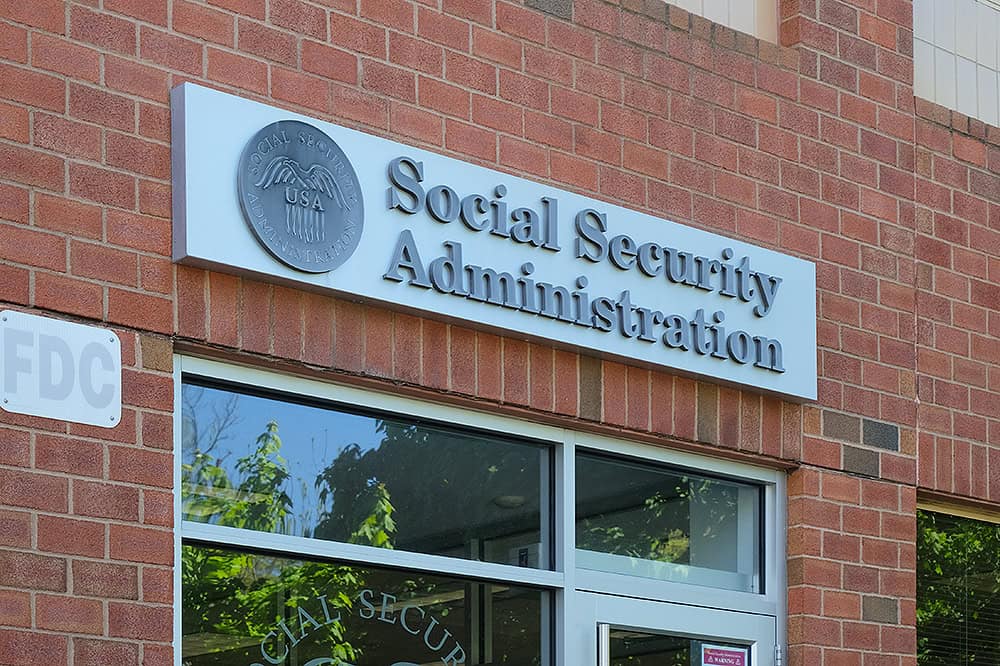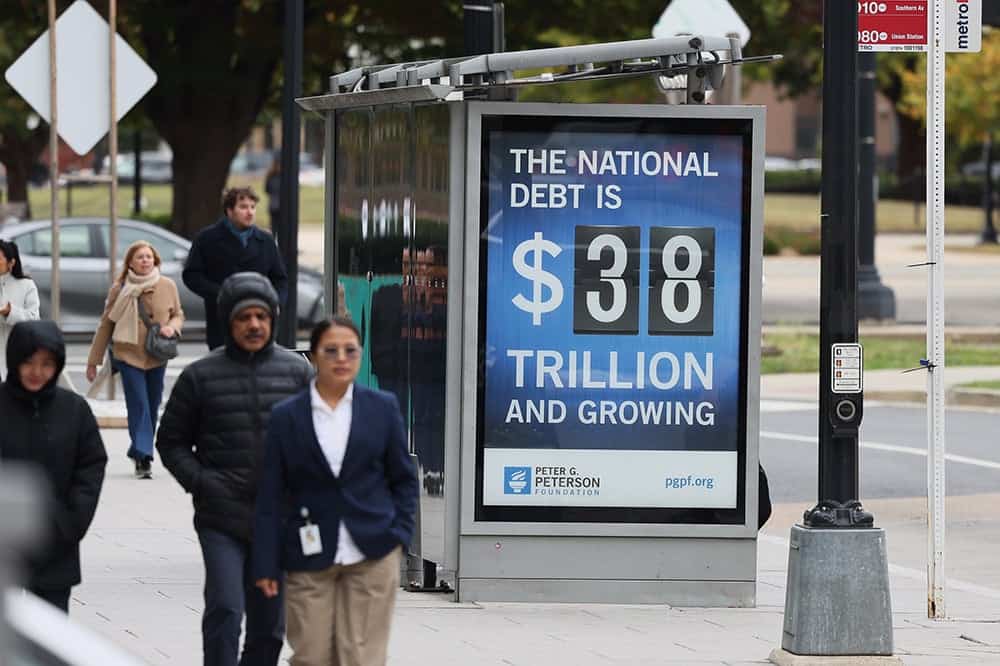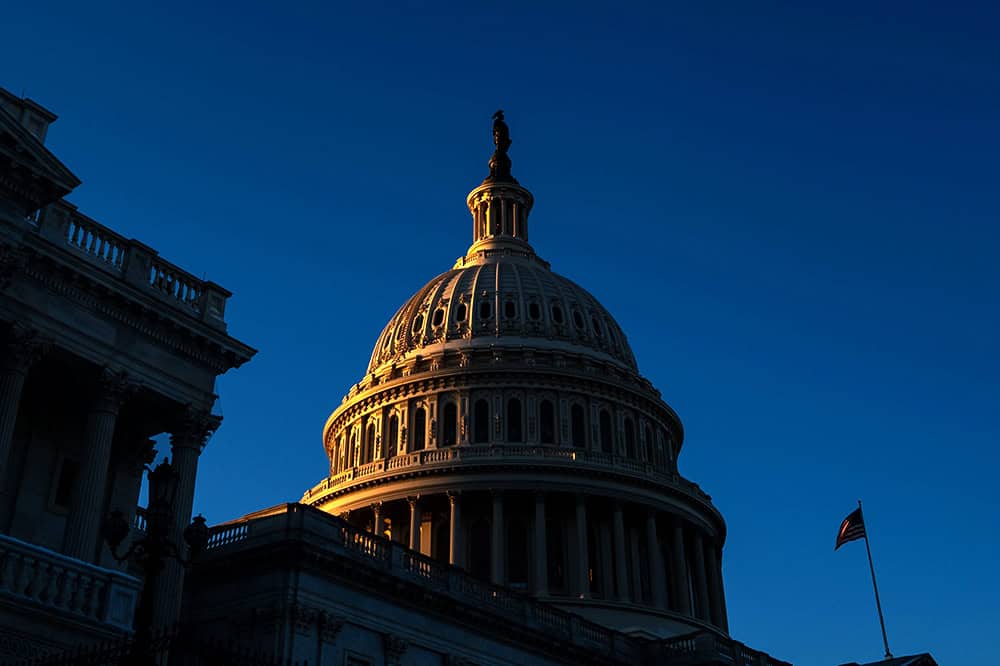With Government Shutdown Deadline Approaching, U.S. Fiscal Confidence Declines
U.S. Fiscal Confidence Index Drops 3 Points in September to 46 (100 is Neutral)
Days before a potential government shutdown, U.S. fiscal confidence is low and falling. The Fiscal Confidence Index in September fell three points to 46 (100 is neutral), reflecting rising concern about the national debt, which recently surpassed $37 trillion and continues to grow.
In the latest monthly survey commissioned by the Peter G. Peterson Foundation, 81% of voters report increased concern about the national debt, with the same percentage urging the president and Congress to spend more time improving our fiscal health. More than three in four voters (77%) agree that the debt should be a top-three priority for policymakers, including 70% of Democrats, 73% of independents, and 87% of Republicans. Additionally, 60% of voters believe lawmakers are on the wrong track when it comes to addressing the debt — the highest percentage since October 2024.
“As Washington faces the challenge of keeping the government open as well as rapidly rising debt levels into the future, voters are increasingly concerned about our nation’s fiscal challenges,” said Michael A. Peterson, CEO of the Peterson Foundation. “Government shutdowns are economically disruptive and fiscally costly, so lawmakers should focus on ways to provide certainty and stability for our nation. Strong majorities of Americans want lawmakers to address the unsustainable debt, which would enhance economic growth and opportunity for our nation.”
The Fiscal Confidence Index measures public opinion about the national debt by asking six questions in three key areas:
- CONCERN: Level of concern and views about the direction of the national debt.
- PRIORITY: How high a priority addressing the debt should be for elected leaders.
- EXPECTATIONS: Expectations about whether the debt situation will get better or worse in the next few years.
The survey results from these three areas are weighted equally and averaged to produce the Fiscal Confidence Index value. The Fiscal Confidence Index, like the Consumer Confidence Index, is indexed on a scale of 0 to 200, with a neutral midpoint of 100. A reading above 100 indicates positive sentiment. A reading below 100 indicates negative sentiment.
Fiscal Confidence Index Key Data Points:
- The September 2025 Fiscal Confidence Index value is 46. (The August value was 49. The July value was 45.)
- The current Fiscal Confidence Index score for CONCERN about the debt is 41, indicating deep concern about the debt. The score for debt as a PRIORITY that leaders must address is 26, indicating that Americans want elected leaders to make addressing long-term debt a high priority. The score for EXPECTATIONS about progress on the debt is 71. The Fiscal Confidence Index is the average of these three sub-category scores.
The Peter G. Peterson Foundation commissioned this poll by Democratic firm Global Strategy Group and Republican firm North Star Opinion Research. This online poll surveyed 1,007 registered voters nationwide between September 15 and September 17, 2025. It has a margin of error of +/- 3.1%.
Detailed results can be found online at www.pgpf.org/FiscalConfidenceIndex.
###
ABOUT THE PETER G. PETERSON FOUNDATION
The Peter G. Peterson Foundation is a nonprofit, nonpartisan organization that is dedicated to increasing public awareness of the nature and urgency of key fiscal challenges threatening America's future, and to accelerating action on them. To address these challenges successfully, we work to bring Americans together to find and implement sensible, long-term solutions that transcend age, party lines and ideological divides in order to achieve real results. To learn more, please visit www.pgpf.org.
Further Reading
Lawmakers are Running Out of Time to Fix Social Security
Without reform, Social Security could be depleted as early as 2032, with automatic cuts for beneficiaries.
What Is the National Debt Costing Us?
Programs that millions of Americans depend on and care about may be feeling a squeeze from interest costs on our high and rising national debt.
Interest Costs on the National Debt Are Reaching All-Time Highs
The most recent CBO projections confirm once again that America’s fiscal outlook is on an unsustainable path — increasingly driven by higher interest costs.


